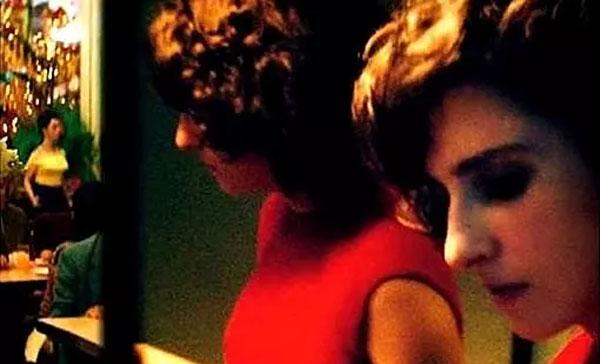The film "Invisible Woman" tells the story of a pair of sisters about the serious patriarchal influence on women in Brazilian society in the 1950s.

The Brazilian film Invisible Woman, based on the novel My Hidden Life and directed by Karim Enoz, won the Grand Prix of Attention at the Cannes Film Festival. If at the beginning you see a pair of sisters, originally sitting on the beach, and then going to climb the mountain, although the surrounding scenery is very beautiful, there are springs, green trees, wildflowers, birdsong, but there is always a little uneasiness in your heart, because the sisters are soon separated, in the empty place, you can only hear their calls to each other, there is a kind of lonely panic.
The film begins on such a tone. They are a pair of good sisters, the sister is called Jeddah, the younger sister is called Juliedith, and it is a little envious to see them full of vitality and intimacy. My sister loves to play the piano, and my sister already has a loved one. That night, there were guests at home, and her sister was going on a date, and she sneaked down the back door stairs under the cover of her sister. Unexpectedly, the sisters never saw each other again in their lives: the sister and her boyfriend eloped to Greece, although the sister was later abandoned by the boyfriend and returned to Brazil, the sisters were in the same city, still could not see each other.
This is the story that happened in Brazil in the 1950s, just like the title of the film "The Invisible Woman", women have no status, and men dominate everything. Sister Jeddah, beautiful and rebellious, advocating a life of free love, met a scumbag, and was rejected by her conservative father, when she went home with a big belly, she was scolded by her father as a "slut" and was driven out of the house. In addition, the father also pretended that his sister had gone to Vienna to learn piano, blocking the connection between the sisters. For her sister Juliedice, whose dream was to learn the piano, she relented and accepted all the arrangements of her father, who opened a bakery, including marrying the supplier's son. Her husband, a macho man, used her as a tool to vent his desires, and after she became pregnant, he did not let her learn the piano. A few years later, when she went to the piano exam without him and was admitted to school, her husband was furious: "Do you want to play the piano for a living?" What do you tell me to do? Let me go and clean up? Taking care of small children? Watering plants? Carol Duarte, the actor who plays Juliedice, said in an interview: "The patriarchy in Rio de Janeiro in the 1950s was very serious... So this movie is also about how devastating this society is to women's lives. ”
This movie is 2 hours and 20 minutes long, from beginning to end, what moves you is the deep sisterhood in the oppressive atmosphere, living in the same city, separating two places, and not knowing each other, how sad it is. The film is linked with letters written by her sister to her sister, which are sent to her parents' house, but the parents never tell their sister about their sister's return home, nor will they forward it to her. These letters are not only descriptions of her sister's own life, such as the fact that after being kicked out of the house by her father, she gave birth to a son, she had no fixed home, but fortunately met Philo, a kind person like her parents and sisters, who was taken in by her and found a job in a shipyard, but also, each letter told how she was worried about her sister who studied piano in Vienna: "I guess your life as a pianist will be very busy. "When you become a successful pianist, you live a good and comfortable life." And why doesn't her sister Julius miss her sister in the distance? She also thought her sister was living a happy life in Greece: "You are surrounded by love and left me here alone." She hired a detective to come to her sister: "She's my last hope." While taking the piano exam, she played the piano and the picture flashed back to the happy time she had with her sister. Carol Duarte said: "The clips that recall the sisters were filmed during the test, and the crew felt good and put them in. ”
There is a scene in the movie where we feel that the sisters are inductive, and they appear in a restaurant at the same time, but they miss it by mistake. They met again in a cemetery, but the sister actually encountered her sister's name engraved on the tombstone. Philo falls ill and will soon die, hoping to swap identities with Jeddah so that Jeddah can keep all his property. Juliedith thought her sister had really died, collapsed in an instant, and suffered from manic and depressive psychosis. She burned the piano and buried it.
The film omits the sisters' later days until more than 60 years later, in her late husband's box, the sister sees these letters written by her sister to herself. The film arranges for the sister and the deceased sister and granddaughter to meet each other, and when the sister holds the granddaughter who resembles the sister, she calls "Jeddah" (the granddaughter is really called Jeddah, the sister named after her real name), and the old tears flow. The granddaughter told the old man: "My grandmother said that her sister was the best pianist in the world. At this time, our hearts, like Julidius', could not help but tremble slightly. (Liu Weixin)